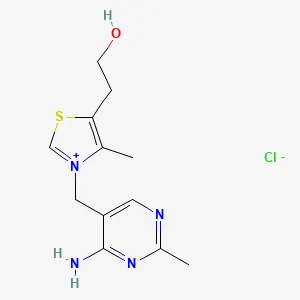
Vitamin B1, also known as thiamine, is an essential nutrient that plays a critical role in maintaining overall health and supporting physical performance. As one of the B-complex vitamins, thiamine is vital for converting carbohydrates into energy, making it particularly important for athletes and those engaged in regular physical activity. This essay explores the numerous benefits of vitamin B1, emphasizing its significance from a fitness and health perspective.
One of the primary functions of vitamin B1 is its role in energy metabolism. Thiamine acts as a coenzyme in the conversion of carbohydrates into glucose, which serves as the body’s primary source of energy. For individuals who engage in strenuous workouts or physical activities, adequate levels of vitamin B1 are crucial for sustaining energy throughout their routines. A deficiency in thiamine can lead to fatigue and decreased performance, making it essential for athletes to ensure they are getting enough of this vital nutrient. By supporting efficient energy production, vitamin B1 enables individuals to push their limits during training and recover more effectively afterward.
In addition to its role in energy metabolism, vitamin B1 has significant implications for cardiovascular health. The heart requires a constant supply of energy to function optimally, and thiamine is essential for producing adenosine triphosphate (ATP), the energy currency of cells. Adequate thiamine levels help maintain proper heart function by supporting the production of neurotransmitters necessary for communication between nerves and muscles. This is particularly important for athletes, as a healthy heart is fundamental to overall performance. By ensuring sufficient intake of vitamin B1 through diet or supplementation, individuals can support their cardiovascular system and enhance their athletic capabilities.
Vitamin B1 also plays a crucial role in brain health and cognitive function. It is involved in the synthesis of neurotransmitters that facilitate communication between nerve cells, which is essential for maintaining mental clarity and focus. For athletes, mental sharpness can significantly impact performance during competitions or training sessions. A deficiency in thiamine may lead to cognitive decline, memory issues, and irritability—factors that can hinder an athlete’s ability to perform at their best. By incorporating foods rich in vitamin B1 into their diets—such as whole grains, pork, beans, and fortified cereals—individuals can support both their physical and mental performance.
The positive effects of vitamin B1 extend beyond energy production and cognitive function; they also encompass stress management. Chronic stress can deplete the body’s stores of essential nutrients, including thiamine. This depletion can lead to increased fatigue and irritability, which may negatively affect an individual’s ability to train effectively or compete at high levels. By replenishing vitamin B1 through dietary sources or supplements, individuals can help combat the effects of stress on their bodies and maintain optimal performance levels.
For those focused on weight management or fat loss, vitamin B1 can be beneficial as well. Foods high in thiamine are often nutrient-dense yet low in calories, making them ideal choices for individuals looking to maintain a healthy weight while still getting essential nutrients. Incorporating sources of vitamin B1 into meals can help promote satiety without excessive calorie intake, supporting weight loss efforts while ensuring adequate nutrition.
Vitamin B1 is also important for maintaining a healthy nervous system. It helps protect nerve cells from damage caused by oxidative stress, which can occur during intense physical activity or due to environmental factors. A well-functioning nervous system is crucial for coordination and reaction times during exercise; therefore, ensuring adequate thiamine intake can enhance athletic performance by supporting overall nerve health.
While obtaining sufficient vitamin B1 through diet is generally achievable for most individuals, some populations may be at risk for deficiency. For instance, people with certain medical conditions such as Crohn’s disease or those who consume high amounts of alcohol may have difficulty absorbing this vital nutrient. In such cases, supplementation may be necessary to prevent deficiency-related complications.
Incorporating vitamin B1 into one’s diet is relatively straightforward due to its presence in various foods. Whole grains like brown rice and oats are excellent sources of thiamine, as are legumes such as lentils and black beans. Additionally, pork products are particularly high in this nutrient. By diversifying their diets with these foods, individuals can easily meet their daily requirements for vitamin B1 while enjoying flavorful meals.
In conclusion, vitamin B1 is an essential nutrient that offers numerous benefits for health and fitness enthusiasts alike. Its contributions to energy metabolism, cardiovascular health, cognitive function, stress management, weight control, and nervous system support highlight its importance in promoting an active lifestyle. By prioritizing adequate intake of thiamine through a balanced diet rich in whole foods or considering supplementation when necessary, individuals can harness the potential benefits of vitamin B1 to enhance their athletic performance while promoting long-term well-being. Embracing this powerful nutrient as part of a comprehensive approach to health will empower individuals on their journey toward achieving optimal fitness while fostering resilience against illness and injury. With proper attention to vitamin B1 status, athletes and fitness enthusiasts alike can unlock new levels of potential in their physical endeavors while enjoying lasting health benefits that contribute to an active lifestyle.
Need your own dietary supplement manufacturer? Extremely competitive rates. We produce it all. Talk to us.
Comments are closed